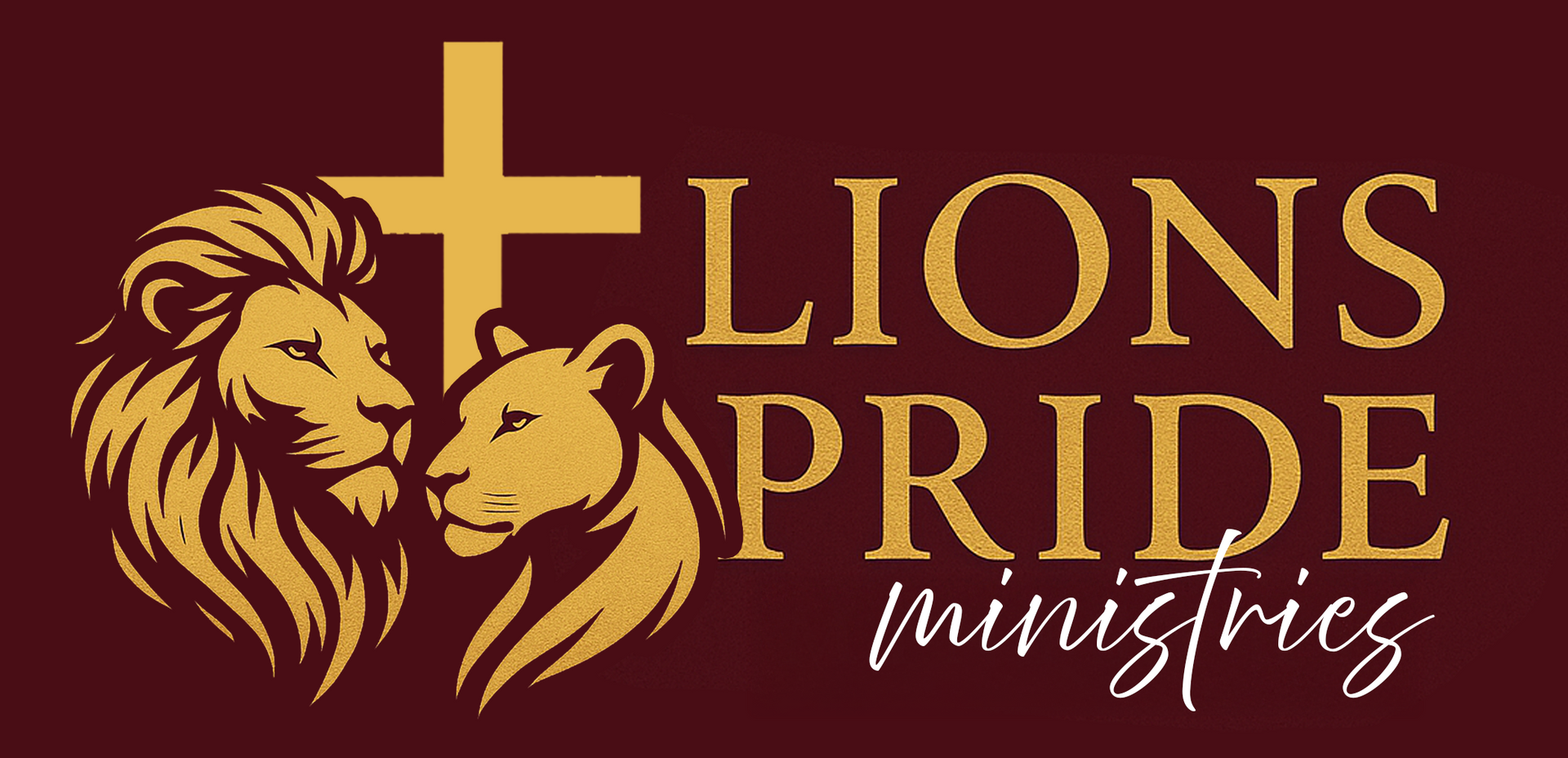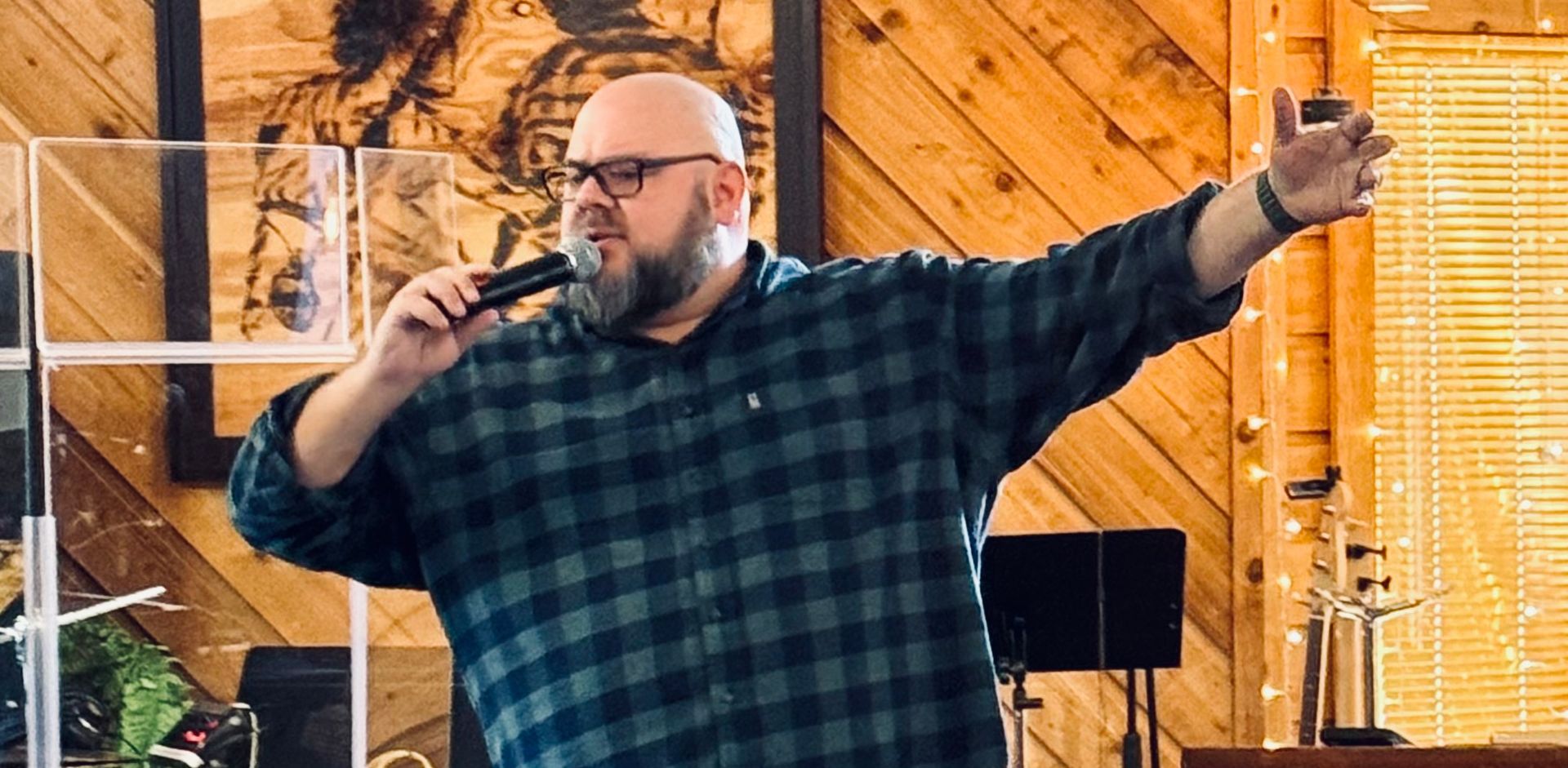Israel's Forgotten Son
Part 1 of the series "After God's Own Heart"

“After removing Saul, he made David their king. God testified concerning him: ‘I have found David son of Jesse, a man after my own heart; he will do everything I want him to do.’”
—Acts 13:22 (NIV)
There’s something holy about being invited into someone’s story. The Lord Himself is the ultimate storyteller—He is always inviting us into the stories of ordinary men and women who, in His hands, become extraordinary. Among all the figures who stride across the pages of Scripture, few are as compelling, complex, or profoundly human as David, son of Jesse. David is a paradox—shepherd and king, poet and warrior, lover and leader, flawed and yet fiercely after God’s own heart. To know David is to be invited into the mystery of God’s delight in humanity, and His relentless pursuit of relationship with us.
When the Lord wanted to show us what it looks like for a man to run after His heart, He gave us David. Not David the untouchable, airbrushed icon, but David the real, unpredictable, flesh-and-blood man. This is where our journey must begin—not with a legend, but with a living man whose life, like ours, was sometimes marked by contradiction, courage, beauty, and brokenness. David’s life is the story of every man who’s ever longed for more but stumbled along the way.
In the chapters that follow, we will look for the living heartbeat of God in the person of David. But before we dive into the traits that set him apart, we must get to know the man behind the myths.
The Context: Israel’s Forgotten Son
To understand David’s significance, we need to take a step back into his world—a time of upheaval in ancient Israel. The people of God, having come through the wilderness and conquered the promised land, had grown restless. They were living under the unstable rule of judges, each generation forgetting the Lord and needing deliverance anew. The cry went up: “Give us a king, like the other nations.” (1 Samuel 8:5)
God warned them what kings would bring—taxes, conscription, oppression—but in His mercy, He granted their request. The first king, Saul, was a head taller than anyone else—impressive on the outside, but ultimately, a man who feared the opinions of people more than the word of God.
When Saul failed, God looked not for a man of stature, but for a man of heart. In the small, rural town of Bethlehem, in the house of Jesse, God saw what no one else could see. He saw David.
“The Lord does not look at the things people look at. People look at the outward appearance, but the Lord looks at the heart.”
—1 Samuel 16:7 (NIV)
Here is the first great lesson of David’s life: God chooses on the basis of the heart. He sees what others do not. He calls the forgotten, the overlooked, the ordinary. He delights to raise up sons from shepherd’s fields, men and women who carry nothing but hunger for Him. If you’ve ever felt unseen, know that David’s story is for you.
The Bible doesn’t give us much about David’s childhood, but what it does tell us is enough to set the stage. He was the youngest of eight sons—a position of little honor in ancient Israel. When the prophet Samuel came to anoint a new king, Jesse didn’t even bother to call David in from the fields (1 Samuel 16:11). He was tending sheep—often dirty, sometimes dangerous, always lonely work.
This is God’s way. He often trains His greatest leaders in hiddenness. Moses had his desert, Joseph had his prison, Jesus had his carpenter’s bench. David had his flock.
Out there among the sheep, David learned the rhythms of creation. He learned to watch, to listen, to defend the vulnerable from lions and bears. He learned to be alone with God. In the silence, he sang. In the quiet, he worshiped. Out there, character was formed in the crucible of obscurity.
We live in a world obsessed with platforms and visibility, but God still develops leaders in the secret place. Bill Johnson once said, “You never want to have a public life that exceeds your private victory.” David’s story reminds us that the anointing for kingship comes in the quiet, unglamorous places where no one is watching but God.
If you find yourself in a hidden season, take heart—God sees, and He is shaping something in you that will last. The psalms are proof that what is forged in obscurity can become an offering for generations.
The Anointing: Chosen for the Unimaginable
David’s story pivots on a single, life-altering moment. The prophet Samuel, grieving over Saul, is sent to Bethlehem. One by one, Jesse’s sons are presented before Samuel, but none are chosen. Finally, they call for David. He’s brought in, “glowing with health and having a fine appearance and handsome features” (1 Samuel 16:12)—but it’s his heart, not his looks, that catch God’s eye.
“Rise and anoint him; this is the one.”
—1 Samuel 16:12 (NIV)
The anointing oil flows over David’s head, setting him apart for a destiny no one could have imagined. Yet even after this moment, David doesn’t go straight to the throne. He returns to the sheep. God’s call is rarely a shortcut. Anointing always precedes appointing, and between the promise and the palace lies a season of preparation. This is true for every believer—God’s word over your life is tested in the fields, in the waiting, in the not-yet.
The Spirit of the Lord came powerfully upon David from that day forward (1 Samuel 16:13). God’s anointing equips us for what is to come, but it also marks us as different. From this moment on, David would never be just a shepherd. He was a man set apart for God’s purposes.
Bill Johnson often teaches that when the Holy Spirit comes upon a person, everything changes—not just for them, but for everyone around them. David became a carrier of God’s presence, and his journey is a roadmap for those who want to host God well.
After his anointing, David is thrust into a series of situations that reveal the content of his character. He is called to play music for Saul, whose tormented spirit finds relief in David’s worship. Even before Goliath, David is ministering—his harp driving out darkness. Worship is his weapon.
David’s defining moment comes on a battlefield. Israel’s army is paralyzed by the taunts of a giant named Goliath. David, still a boy, is sent to deliver bread and cheese to his brothers. But what he hears—a challenge to the living God—awakens something fierce in him. Faith rises, not bravado. David’s confidence is not in himself, but in the Lord.
“Your servant has killed both the lion and the bear; this uncircumcised Philistine will be like one of them, because he has defied the armies of the living God. The Lord who rescued me from the paw of the lion and the paw of the bear will rescue me from the hand of this Philistine.”
—1 Samuel 17:36-37 (NIV)
David’s courage is rooted in history with God. What he learned in private prepared him for public victory. He faces Goliath not as a seasoned soldier, but as a son who trusts his Father.
There is a profound truth here: every hidden victory matters. The lions and bears of your life—the challenges no one else sees—are preparation for the giants you will face in public. Don’t despise the small battles; God is forging a champion.
David’s victory over Goliath catapults him into the national spotlight. He becomes a hero, beloved by the people and feared by the king. Saul brings David into his court, gives him military command, and watches as “whatever mission Saul sent him on, David was so successful that Saul gave him a high rank in the army. This pleased all the troops and Saul’s officers as well” (1 Samuel 18:5).
But favor is a double-edged sword. The same anointing that attracts honor can also provoke jealousy. Saul’s insecurity grows, and David’s life becomes a study in surviving betrayal. He is hunted, slandered, forced to flee into the wilderness.
Many are willing to embrace God’s call, but few are ready for the cost. Favor can draw both friends and enemies. David’s response is remarkable—he honors Saul, refusing to take matters into his own hands. Twice he has the opportunity to kill Saul and “end” his wilderness trial, but he chooses to trust God’s timing instead.
“The Lord forbid that I should do such a thing to my master, the Lord’s anointed, or lay my hand on him; for he is the anointed of the Lord.”
—1 Samuel 24:6 (NIV)
Here is a man who knows the difference between seizing a throne and receiving a kingdom. In a culture obsessed with promotion, David waits for God’s elevation. He knows that what God starts, only God should finish. This is a lesson for every man who wants to steward authority well.
David’s wilderness years are perhaps the most important season of his life. Stripped of status, safety, and certainty, he is forced to depend on God for everything. He gathers a ragtag band of men—outcasts, debtors, the discontented (1 Samuel 22:2). In the cave of Adullam, David learns the art of building community. He becomes a leader not by demand, but by example—serving, guiding, and enduring with his men.
The wilderness exposes the heart. It reveals where our trust lies. For David, it was the crucible that shaped his character more than any palace ever could. In the songs he wrote during these years, we find raw honesty and radical dependence:
“I cry aloud to the Lord;
I lift up my voice to the Lord for mercy.
I pour out before him my complaint;
before him I tell my trouble.
When my spirit grows faint within me,
it is you who watch over my way.”
—Psalm 142:1-3 (NIV)
David’s vulnerability becomes his strength. He does not hide his pain from God; he brings it into the light. Bill Johnson often says, “God will never waste a hurt.” In David’s life, suffering becomes an invitation into intimacy. His psalms are permission for us to bring our full selves before God—the joy and the grief, the praise and the lament.
If you are in a wilderness season, know this: it is not punishment, but preparation. God is forming in you the kind of heart that can carry His promises. The cave is not the end of your story—it is the place where you discover God is enough.
The Crown: Success and the Test of Comfort
After years of waiting, David finally ascends to the throne. Saul is dead, and Israel rallies around David as king. His leadership is marked by expansion, justice, and the restoration of worship. He brings the ark of the covenant back to Jerusalem, dancing “with all his might” before the Lord (2 Samuel 6:14). He establishes the city as a center for God’s presence.
David’s kingship is the fulfillment of promise, but it is also the greatest test. Success is a dangerous place. The same heart that was humble in the fields and desperate in the wilderness can become complacent in the palace.
It is in the comfort of victory that David stumbles most grievously. The story of Bathsheba and Uriah (2 Samuel 11) is a sobering reminder that no man is immune to temptation. David’s failure is not just a lapse in judgment; it is a consequence of neglecting intimacy with God. “In the spring, at the time when kings go off to war…David remained in Jerusalem” (2 Samuel 11:1). Passivity opened the door to compromise.
Yet, even in failure, David’s response sets him apart. When confronted by the prophet Nathan, he does not excuse or minimize his sin. He repents with all his heart:
“Have mercy on me, O God,
according to your unfailing love;
according to your great compassion
blot out my transgressions.”
—Psalm 51:1 (NIV)
The mark of a man after God’s heart is not perfection, but repentance. Bill Johnson has said, “God is not looking for those who have never failed; He’s looking for those who refuse to stay down.” David’s greatest glory is not in his victories, but in his willingness to return to the Lord, again and again.
David’s life does not end with a list of achievements or a record of unbroken triumphs. His family is marked by pain, his reign by both glory and grief. Yet, when the story of his life is summarized, this is what God says:
“I have found David son of Jesse, a man after my own heart; he will do everything I want him to do.”
—Acts 13:22 (NIV)
David’s legacy is not flawless execution, but relentless pursuit. He teaches us that intimacy with God is not for the sinless, but for the sincere. The grace that shaped David is available to every man who will humble himself and say yes to God—no matter how many times he has fallen.
The New Testament draws a straight line from David to Jesus. The Son of God is called “the Son of David.” It is through David’s line that the Messiah comes. The promise made to a shepherd boy in Bethlehem echoes through eternity.
Why David’s Humanity Matters
So, why start a book on manhood with David’s story? Because David’s life is a mirror for every man who has ever longed for more. He shows us that God is not after perfect resumes or pristine records. He is after hearts that hunger for Him.
When I was a kid, David always seemed like a monolith to me—a towering icon of faith, an untouchable hero whose name echoed through Sunday School flannelgraphs and revival sermons. In my mind, he was a legend, the prototype of what a godly man and king was supposed to be. Nobody really talked about his flaws. I certainly didn’t want to see them. When his story came up, it was all Goliath and glory, none of the mess that comes with real life.
But as I got older, I wandered from God for a while, like so many of us do. Teenage years took me into the weeds, far from that childhood sense of certainty. It wasn’t until a youth camp—(by the way, if you’re a dad, send your kids to camp, no matter what it costs)—that I found myself face-to-face with Jesus. There, surrounded by peers who were hungry for something real, I felt Him call for the first honest exchange: my angry, broken, lust-filled heart for His healing and hope. That’s where it started for me.
I came back from that camp on fire. I launched a discipleship group at my high school, started telling anyone who would listen about Jesus. Some of my closest friends now can point back to those days as the first chapter in their faith story. After graduation, I stepped into ministry school, leading teams back to those same camps, believing for other kids to meet God the way I did.
I’ll never forget one camp in particular, standing in worship, my eyes drawn to a flag with the Star of David. The Lord spoke: “I’ll empower you like I empowered David.” In that moment, I felt so connected to my namesake, like maybe my story could fit somewhere in God’s tapestry of redemption.
But I need you to hear this: the years that followed were anything but perfect. I brought real baggage into ministry—a nagging addiction to pornography that eventually came into the light. My pastor found out, and I was fired. I walked through a public restoration plan, stayed in the same church, clinging to hope when all I felt was shame. My marriage struggled under the weight of unresolved pain. We moved to Texas to help plant a church; that, too, unraveled. We tried again in Columbus, and for a season, things seemed to work. But the foundation was cracked, and when the world went into lockdown, my marriage of 15 years collapsed for good. My ex-wife said she didn’t want the relationship anymore. I was devastated. I asked God, “How did I get so far from the man after Your own heart—the giant-slayer, the worshiper, the friend of God?”
In the wreckage, God met me again. I met Lauren—my wife, my friend, my lifeline. She reminded me there is life after failure, that even after tragedy, bad decisions, and weakness, God isn’t done writing the story.
It wasn’t until the summer of 2025, at Randy Clark’s Global Summer Intensive, that I finally got the inspiration for this book. A handful of prophecies reminded me: your calling isn’t canceled, your story isn’t finished, your pain isn’t wasted. The Lord began to stir in me a fresh vision to minister to men—to take up the mantle, not of some airbrushed, invincible hero, but of a deeply flawed man who kept coming back to God.
David’s life took on new color for me. Yes, he had victories—but he also had hurts, habits, and hangups. Not all of them were his fault, but every one of them became his responsibility. And that’s where this book comes from—a man in process, who has failed and fallen and still keeps chasing after the heart of God.
David’s story invites us to be real with God. To bring our disappointments, our victories, our confusion, and our worship. It invites us to embrace the hidden seasons, to trust God’s timing, to steward authority with humility, and to return quickly when we stumble.
In Bill Johnson’s words: “What you think about God is the most important thing about you.” David’s greatness was not in what he did, but in who he believed God to be. He believed in a God who forgives, who restores, who delights to lift the humble and to confound the proud.
As we begin this journey, let David’s story provoke you. Don’t settle for a distant relationship with God. Let your heart become a landing place for His presence. If God could use David, He can use you.
Maybe you’ve felt overlooked, disqualified, or stuck in the wilderness. Maybe you’ve been fighting giants no one else sees, or wrestling with failures that feel final. The story of David is your invitation to start again. To believe that God sees you, chooses you, and will finish what He started in you.
Over the next chapters, we will explore the six qualities that shaped David’s life—the shepherd, the poet, the son, the warrior, the priest, the king. Each aspect offers a doorway into deeper intimacy with the Father. But it all begins here: with a man who was willing to say yes, again and again.
Let’s step into the story together. The God who met David in the fields, the caves, and the throne room is the same God who is calling you now. Will you answer?


